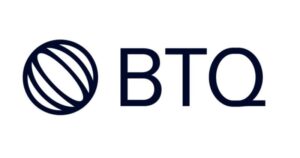Pocket Network Raises $10M to Expand Node Infrastructure
Key Takeaways
Pocket Network has closed a $10 million strategic round led by Republic Capital, RockTree Capital, Arrington Capital, and C² Ventures.
The project provides node infrastructure for Web3 applications across different blockchains.
The team stated that the funding will be used to further develop its decentralized node network.
Share this article
Pocket Network has closed a strategic funding round led by Republic Capital, RockTree Capital, Arrington Capital, and C² Ventures.
Pocket Network Closes Private Sale
Pocket Network has raised $10 million in funding.
The blockchain infrastructure project received the investment in a strategic private sale led by Republic Capital, RockTree Capital, Arrington Capital, and C² Ventures. Other participants included Coinshares, Decentral Park Capital, and Dominance Ventures.
In a Thursday press release, the team reported that it would use the newly-raised capital to fund development on its network. It will also be used to expand its operations into the Asia-Pacific region.
Pocket Network hosts thousands of blockchain nodes to provide decentralized computing for Web3 applications. It provides a way for dApps on more than 20 blockchains to access its node services via an Application Programming Interface. Supported blockchains include Ethereum, Algorand, Binance Smart Chain, Solana, Polygon, xDai, and Harmony.
Commenting on the raise, RockTree Capital CEO Omer Ozden shared his insights on the project’s promise. He said:
“Many exchanges and dApps are still reliant today on Web2 centralized cloud computing and hosting providers, which can cause costly outages when they go down. RockTree believes Pocket Network is critical infrastructure for the Web3 revolution that offers true decentralization and constant uptime for a multi-chain blockchain future.”
In recent months, Pocket Network has seen growing adoption among blockchains looking to meet their decentralized computing requirements. Since July, Pocket Network’s usage has more than doubled every month. In December 2021 alone, Pocket claims to have served 5.5 billion API calls due to growing demand for multi-chain infrastructure, with monthly revenue totaling $56 million.
Projects such as Pocket Network help blockchains decentralize their operations as dependence on centralized services can lead to major problems. In November 2020, for instance, the node infrastructure provider Infura, which is built on Amazon Web Services, caused issues on Ethereum when it suffered an outage.
Rather than using Amazon Web Services or other centralized cloud platforms, Pocket Network hosts a network of independent nodes, thus removing a single point of failure. In the decentralized middleware niche, Pocket competes with others like Alchemy, Quiknode, and AVADO.
Michael Arrington, the founder of Arrington Capital, said his team was “excited to support Pocket Network in its mission to incentivize Layer 1 decentralization.” He added that Pocket was “critical to enhancing the long-term robustness and anti-fragility of the entire crypto ecosystem.”
Pocket Network currently comprises 18,000 full nodes operated by independent providers. The providers are incentivized through Pocket’s native token, POKT. Pocket says it wants to grow its network to include hundreds of thousands of full nodes in the next five years. If it meets its target, that would mean it could process trillions of API calls per day.
Disclosure: At the time of writing, the author of this piece owned ETH, SOL and several other cryptocurrencies.
Share this article
The information on or accessed through this website is obtained from independent sources we believe to be accurate and reliable, but Decentral Media, Inc. makes no representation or warranty as to the timeliness, completeness, or accuracy of any information on or accessed through this website. Decentral Media, Inc. is not an investment advisor. We do not give personalized investment advice or other financial advice. The information on this website is subject to change without notice. Some or all of the information on this website may become outdated, or it may be or become incomplete or inaccurate. We may, but are not obligated to, update any outdated, incomplete, or inaccurate information.
You should never make an investment decision on an ICO, IEO, or other investment based on the information on this website, and you should never interpret or otherwise rely on any of the information on this website as investment advice. We strongly recommend that you consult a licensed investment advisor or other qualified financial professional if you are seeking investment advice on an ICO, IEO, or other investment. We do not accept compensation in any form for analyzing or reporting on any ICO, IEO, cryptocurrency, currency, tokenized sales, securities, or commodities.
See full terms and conditions.
Infura Outage Sparks Debate Over Ethereum’s Decentralization
This morning’s Infura outage has highlighted some of Ethereum’s most widely-discussed flaws, reigniting discussions around the true meaning of decentralization. Why Infura’s Outage Was a Problem Infura is one of…
Bitcoin Lightning Nodes Double In Three Months
Shortly after the anniversary of its beta launch, the Lightning Network reached 4,000 nodes, suggesting more adoption for Bitcoin’s second layer.
A Guide to Yield Farming, Staking, and Liquidity Mining
Yield farming is arguably the most popular way to earn a return on crypto assets. Essentially, you can earn passive income by depositing crypto into a liquidity pool. You can think of these liquidity…
Decentralization: The Big Problem For Blockchain
Decentralization is one of the buzzwords of blockchain technology: companies and web sites have sprung up that include this word as part of their name. Decentralization has been touted as…
















